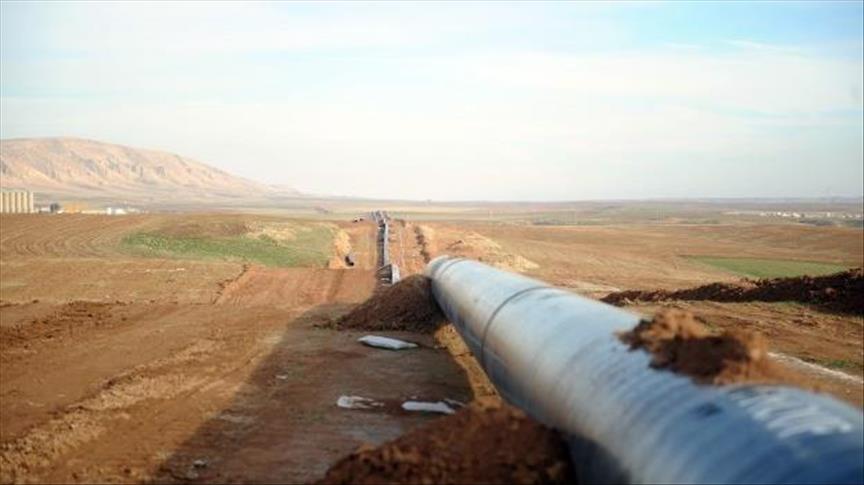The Iraq-Türkiye oil pipeline that transports Iraqi crude from Kirkuk to export facilities in Ceyhan on the Turkish Mediterranean coast will resume operations this week and transmit 500,000 barrels of oil per day to global markets, Türkiye’s energy minister said on Monday.
The 970-kilometer-long pipeline, which has been in use for the previous 45 years but was damaged by the devastating earthquakes that struck Türkiye in February, will resume this week, Alparslan Bayraktar confirmed.
Speaking on the sidelines of the ADIPEC Exhibition and Conference in Abu Dhabi, the energy minister relayed the country’s energy ambitions to become an energy trading hub, which he disclosed it was one step closer to realizing given the recent gas supply agreements signed with Romania, Hungary, Bulgaria and Moldova.
The country’s energy priorities also include the supply of reliable and affordable energy to its citizens to meet growing demand, along with its aim to decarbonize the country’s economy.
“Demand is growing in Türkiye and to meet this growing demand, we need a lot of investment in power, gas and oil,” Bayraktar said, given the expectations that electricity demand in the country will grow by 3.7% over the next two decades.
Bayraktar said Türkiye is heavily investing in renewable resources to help meet growing local power demand, reduce energy dependency on foreign resources and contribute to the country’s decarbonization.
The country is also diverging towards nuclear power and is constructing its first nuclear plant in Mersin in the country’s south, with the goal of reaching over 20 gigawatts of nuclear power generation with large-scale conventional as well as small modular reactors.
“We have a very ambitious plan to add each and every single year five gigawatts of solar and wind capacity, and we would also like to use nuclear as an important decarbonization tool,” Bayraktar said.
Natural gas will also aid the country in its energy transition goals.
“We are also investing heavily in upstream projects for natural gas because we see that natural gas will play a crucial role in our energy transition. That’s why we are investing heavily in upstream projects together with some potential partners,” he said.

